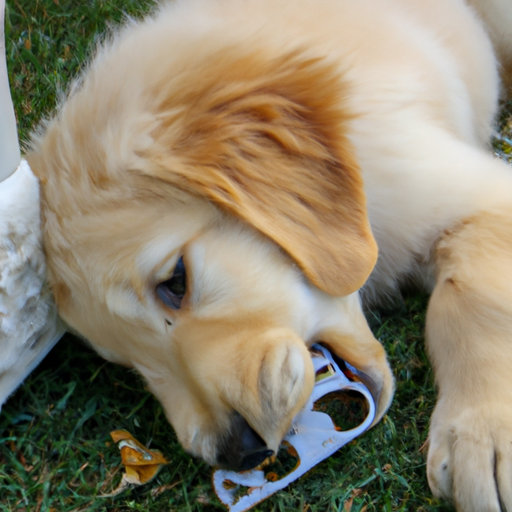As a caregiver, you play a crucial role in supporting your puppy through their teething phase. This article will provide you with detailed insights into the symptoms of puppy teething and how you can help your furry friend navigate this uncomfortable period in their life.
1. Recognizing the Signs of Teething
Your puppy’s teething stage typically begins around 3 to 4 months old and can last until they are 6 to 7 months old. During this period, you might notice the following symptoms:
- Increased chewing
- Swollen, red gums
- Drooling
- Missing teeth
- Irritability
2. Understanding the Teething Process
Puppies are born with a set of 28 deciduous (baby) teeth that they lose during the teething stage. Here is a rough timeline:
- 3 to 4 weeks: Deciduous teeth start to emerge
- 3 to 4 months: Deciduous teeth begin to fall out, and adult teeth start to grow
- 6 to 7 months: Most puppies have all their adult teeth by this age
3. How to Soothe a Teething Puppy
To help your puppy through this uncomfortable phase, you can:
- Provide chew toys: These can help soothe their sore gums and keep them from chewing on furniture or other items.
- Use cold items: A chilled chew toy or a wet washcloth can provide relief.
- Feed them soft foods: This can make eating less painful during this period.
4. When to Seek Veterinary Help
While teething is a natural process, there could be complications that require veterinary attention. Contact your vet if you notice:
- Persistent bad breath
- Difficulty eating
- Overly aggressive behavior
- Continued discomfort after teething should have ended
5. Preventing Dental Problems in the Future
Once your puppy has all their adult teeth, it’s important to establish a dental care routine. This should include:
- Regular brushing: Aim for at least once a week, but daily is best.
- Dental chews and toys: These can help keep their teeth clean.
- Regular check-ups: Your vet can catch any potential issues early.
6. Common Misconceptions About Puppy Teething
There are several misconceptions about puppy teething, including:
- Teething causes fever and diarrhea: These symptoms are not typically associated with teething and could indicate other health problems.
- Puppies swallow their baby teeth: While this can happen, it’s more common for the teeth to fall out while a puppy is eating or playing.
7. FAQ about Puppy Teething
Q: How long does puppy teething last?
A: Typically, teething lasts from 3 to 7 months.
Q: Can teething cause my puppy to lose their appetite?
A: Yes, the discomfort can cause temporary loss of appetite.
Q: What can I give my puppy for teething pain?
A: Safe chew toys, cold items, and soft foods can help soothe your puppy’s gums.
8. Conclusion
As a caregiver, understanding your puppy’s teething process is key to helping them through it. By recognizing the signs, providing relief, and seeking veterinary help when necessary, you can ensure your puppy’s transition from baby to adult teeth goes as smoothly as possible.



